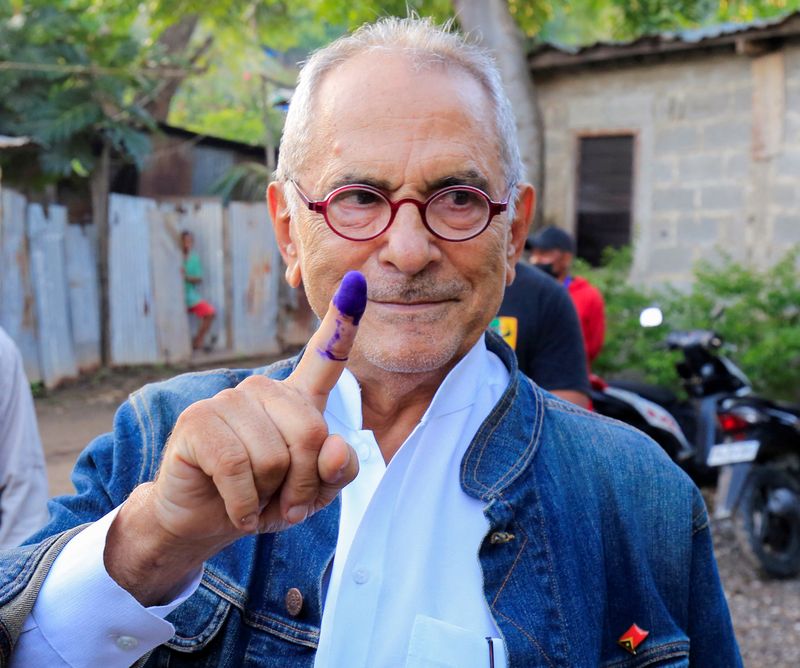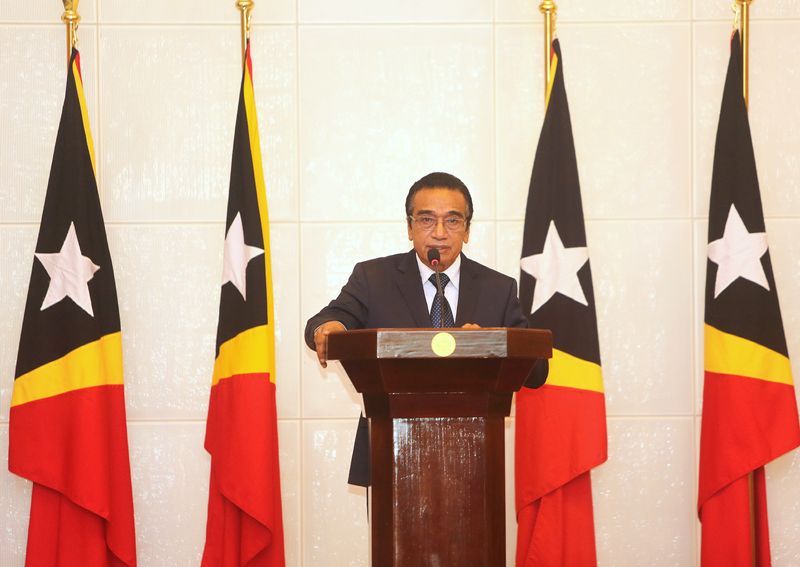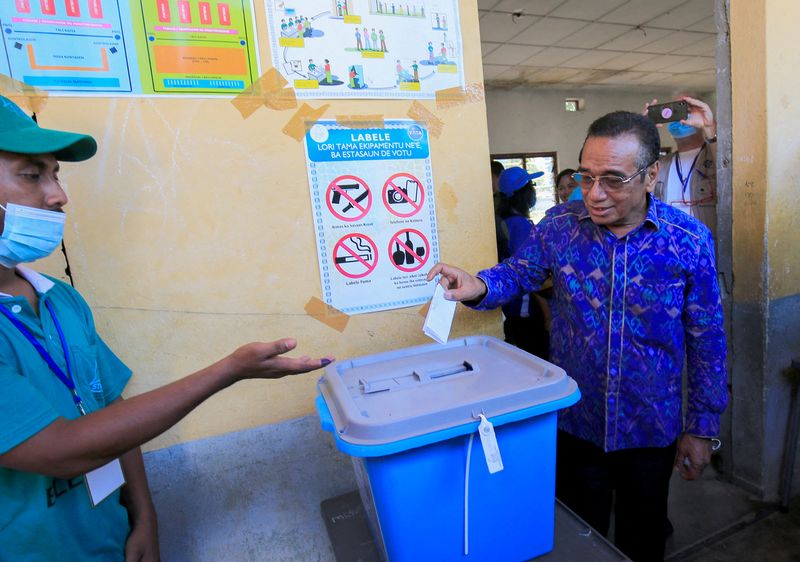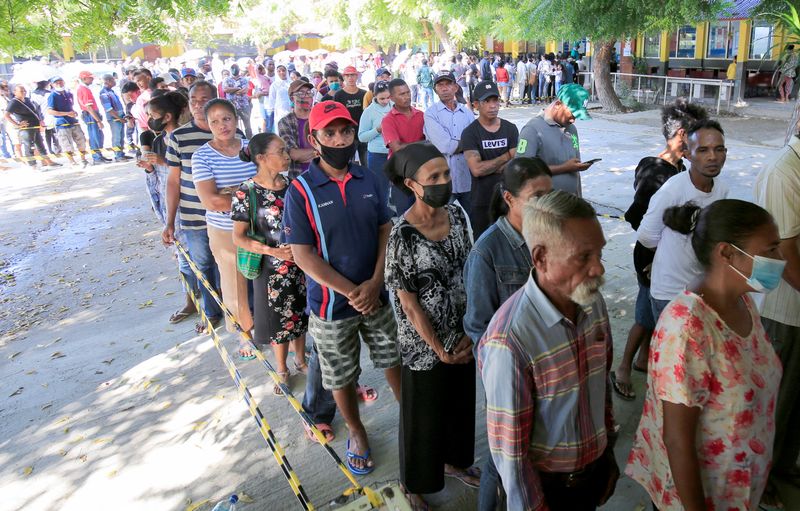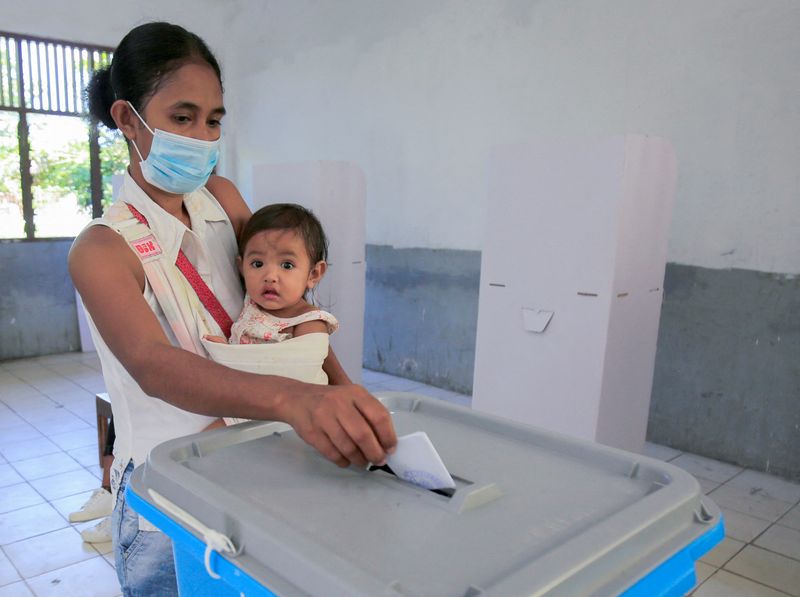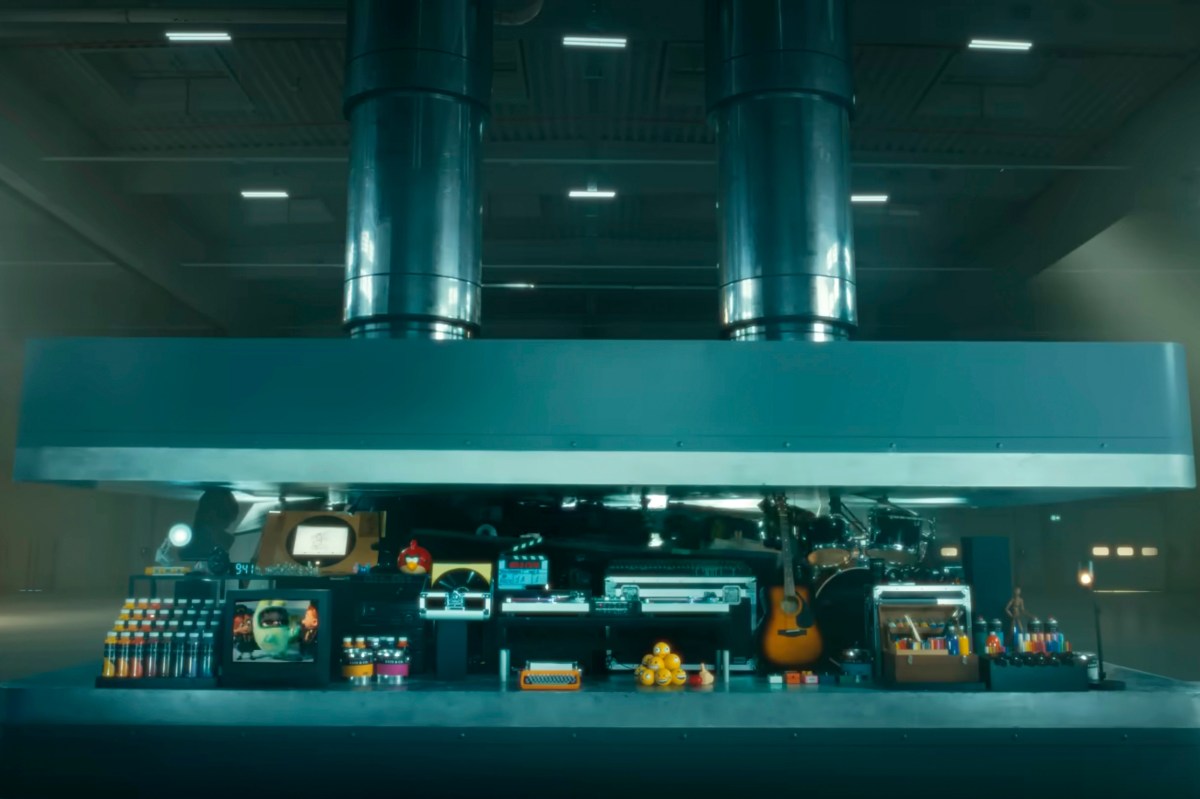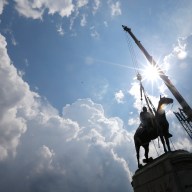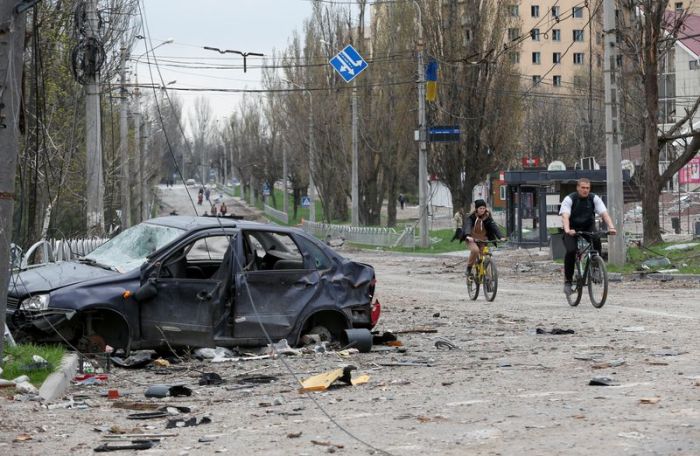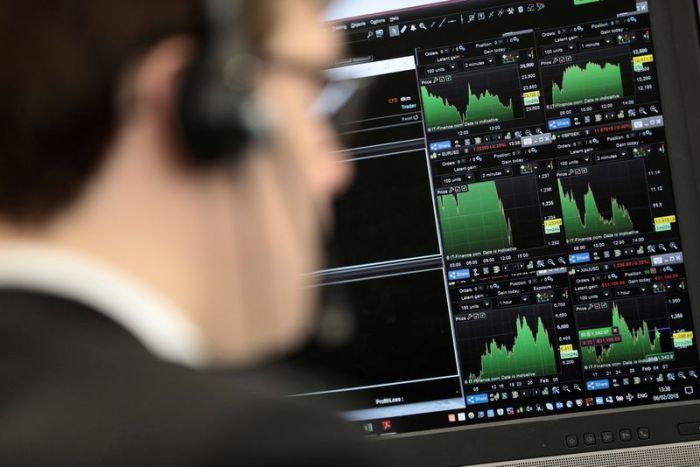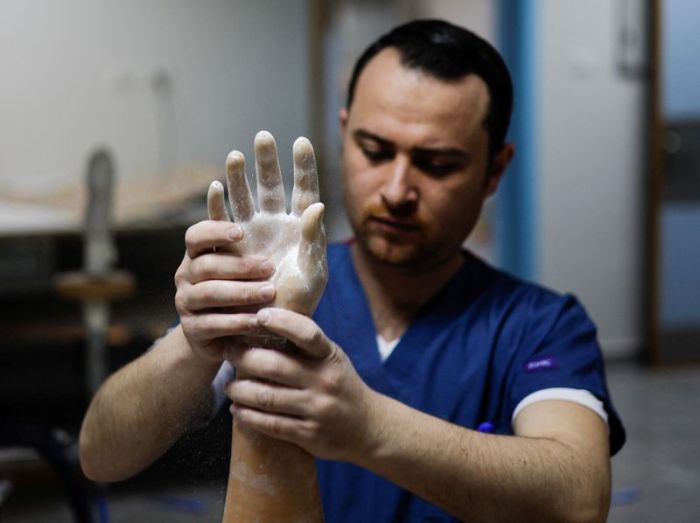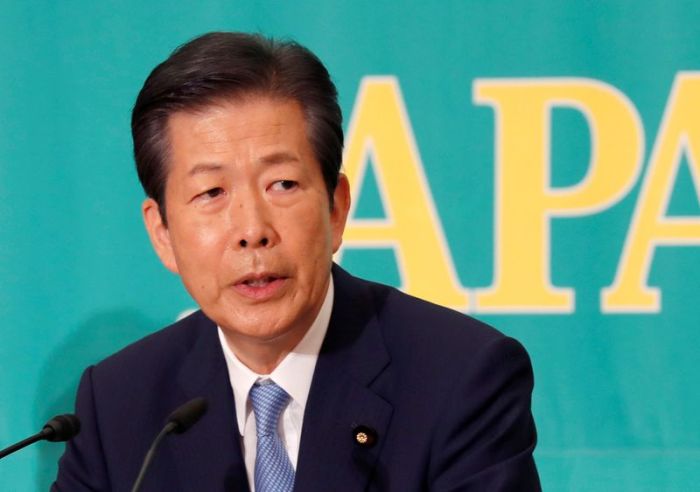DILI (Reuters) -Polls closed on Tuesday in the second and final round of East Timor’s presidential election, widely seen as key to the nation’s stability, with early counts expected to show Nobel laureate and former president Jose Ramos-Horta as favourite.
Independence hero Ramos-Horta, who led the country from 2007 to 2012 and received 46.5% of votes in the first round last month, needs just 30,000 additional votes to secure an outright majority https://asialink.unimelb.edu.au/insights/old-rivalries-and-party-splits-the-presidential-runoff-in-timor-leste, according to an expert at the University of Melbourne.
Early vote counts are expected to be available late on Tuesday. The next president will be sworn in on May 20, the 20th anniversary of East Timor’s independence from a brutal occupation by neighbouring Indonesia.
Ramos-Horta, who also served as prime minister and foreign minister, is up against incumbent president Francisco “Lu Olo” Guterres – also a noted resistance figure – who garnered 22.1% in the first round.
Political fractures have underscored this election, with Ramos-Horta, 72, signalling that he may use presidential powers to dissolve parliament and call for early parliamentary elections if he wins.
Ramos-Horta said he felt compelled to run for president after Lu Olo refused to swear in more than half a dozen ministers after the 2018 elections due to investigations into alleged misconduct.
That decision ignited the ongoing political impasse.
Ramos-Horta has said the nation can expect a “political earthquake” if elected but Damien Kingsbury, an East Timor expert and emeritus professor at Australia’s Deakin University, said dissolving parliament could “introduce a level of instability back into the Timorese political system”.
In the capital Dili, voters queued up outside polling stations and dipped their fingers in purple indelible ink after casting their ballots.
“My hope is the presidential candidate who is elected and the one who is not can shake hands and advise each other to ensure stability and not create a crisis,” said 27-year-old university student Lizia Bachita de Araujo.
“I want the president to be able to work with the government to create more jobs,” said Dili resident and housewife Pascoela da Silve Pereira. “It is difficult for people to provide for their households.”
After voting in the Dili suburb of Metiaut, Ramos-Horta said he was “very confident” he would win, but would accept any outcome.
Lu Olo, a 67-year-old former guerrilla fighter, also affirmed his commitment to accepting the results.
“This is democracy and I always say (win or lose) it must be with dignity,” he said.
The half-island nation of 1.3 million has in recent years grappled with political instability and the need to diversify its economy away from oil and gas revenues.
(Reporting by Kate Lamb in Sydney and Nelson Da Cruz in Dili; Editing by Kanupriya Kapoor and Nick Macfie)

